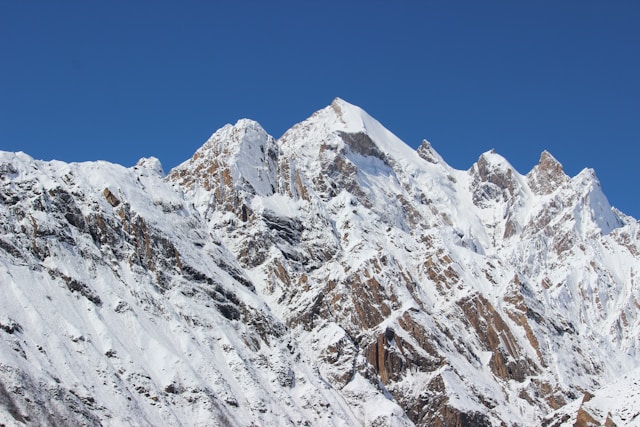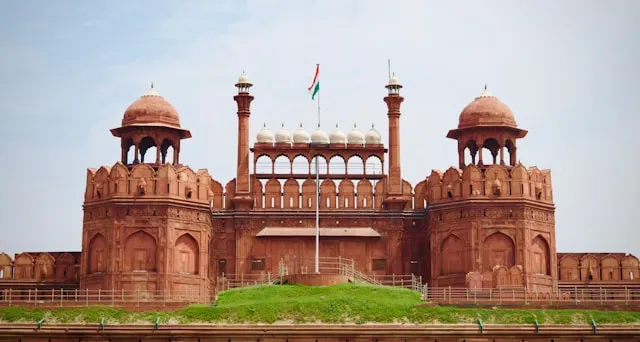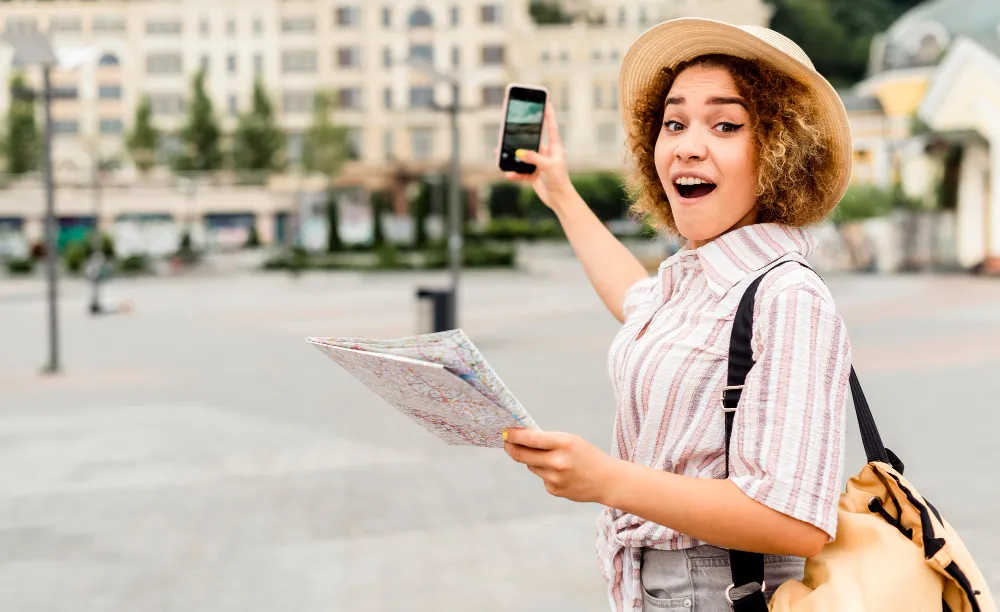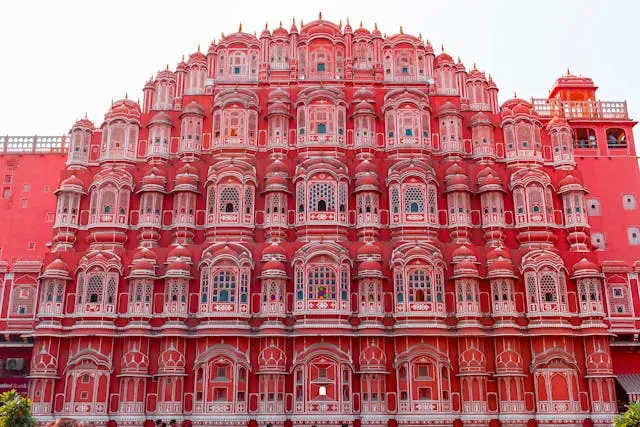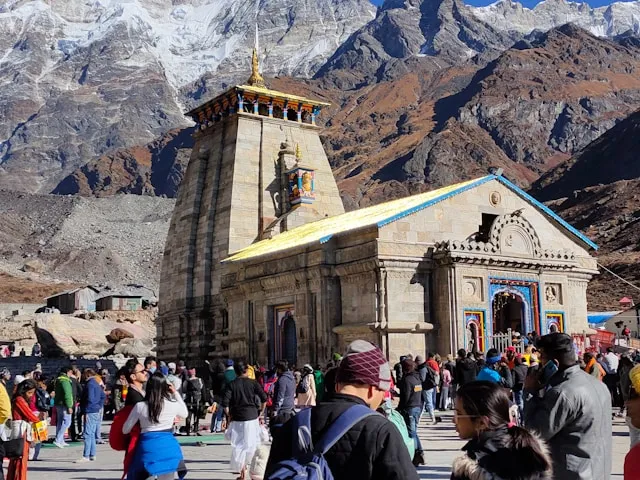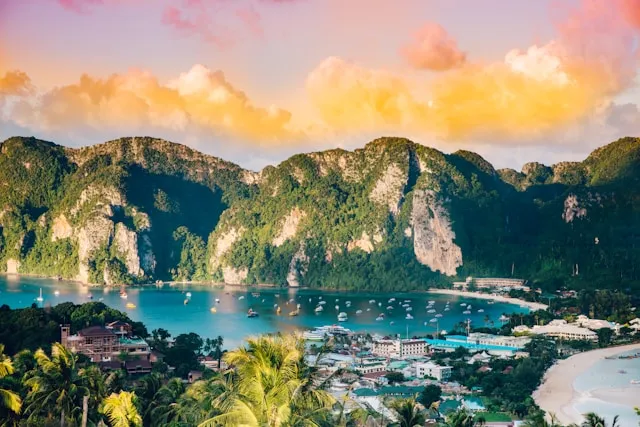Cambodia Travel Guide
Cambodia
About Cambodia Travel Guide
Destination Overview – Cambodia
Cambodia, a culturally rich and historically significant Southeast Asian country, offers a journey into the heart of ancient Khmer civilization. Home to the world-renowned Angkor Wat temple complex, Cambodia blends mysticism, spiritual grandeur, and tropical charm. From vibrant cities like Phnom Penh to serene countryside and river landscapes, the country captivates both history lovers and adventure seekers.
Once the center of the Khmer Empire, Cambodia today stands as a symbol of resilience and cultural pride. It is a compelling choice for travelers interested in temples, heritage, cuisine, and authentic local experiences.
Top Attractions & Places to Visit in Cambodia
Temples & Religious Sites
Angkor Wat, Siem Reap
Bayon Temple (Angkor Thom)
Ta Prohm (famous for its jungle-covered ruins)
Banteay Srei (known for its intricate carvings)
Silver Pagoda, Phnom Penh
Historical & Cultural Sites
Royal Palace, Phnom Penh
Tuol Sleng Genocide Museum
Killing Fields of Choeung Ek
National Museum of Cambodia
Preah Vihear Temple
Nature & Unique Experiences
Tonlé Sap Lake (floating villages and eco-tours)
Phnom Kulen National Park
Bamboo Train in Battambang
Cardamom Mountains
Kep & Kampot coastal towns
Festivals & Cultural Events
Khmer New Year (April)
Pchum Ben (Ancestors' Day, Sept–Oct)
Water Festival (Bon Om Touk, Nov)
Angkor Festival (traditional dance and culture near Angkor Wat)
Best Time to Visit Cambodia
Ideal Season: November to March offers cool, dry weather, perfect for temple visits.
Avoid: May to October, due to monsoon rains and high humidity.
Shoulder Season: April to early May, good for fewer crowds but warmer temperatures.
How to Reach Cambodia
Air: Main international airports are in Phnom Penh (PNH) and Siem Reap (REP).
Road: Buses connect Cambodia with Thailand, Vietnam, and Laos via multiple border crossings.
Rail: Limited train service is available domestically between Phnom Penh and Sihanoukville.
Local Transport in Cambodia
Tuk-tuks, motorbike taxis, and ride-hailing apps (like Grab) are widely used. Car rentals with drivers are available for longer distances. In cities, walking is a great way to explore central areas.
Accessibility for Differently-Abled Travelers in Cambodia
Major attractions like Angkor Wat have begun improving access, with ramps and guided services. Some hotels offer wheelchair-accessible rooms, but accessibility may still be limited in remote areas and older temples.
Things to Do & Experiences in Cambodia
Witness sunrise at Angkor Wat, one of the most iconic spiritual experiences.
Take a boat tour on Tonlé Sap Lake to see floating villages.
Visit the Killing Fields and Tuol Sleng for a powerful insight into Cambodia’s history.
Explore the colonial charm of Battambang.
Discover Khmer cuisine through local food tours and cooking classes.
Enjoy a traditional Apsara dance performance in Siem Reap.
Accommodation Options in Cambodia
Cambodia offers a wide range of stays, from budget hostels to luxury resorts.
Top areas to stay:
Siem Reap – for temple visits
Phnom Penh – for city experiences
Sihanoukville & Islands – for beach escapes
Popular hotel picks include Shinta Mani, Raffles Hotel Le Royal, and Sarai Resort & Spa.
Local Cuisine & Dining in Cambodia
Cambodian food is flavorful, aromatic, and often overlooked.
Must-try dishes:
Amok (steamed fish curry)
Lok Lak (stir-fried beef)
Nom Banh Chok (Khmer noodles)
Fried Tarantulas (for adventurous eaters)
Street food markets in Siem Reap and Phnom Penh are great for casual local meals.
Travel Tips & Safety in Cambodia
Dress modestly when visiting temples and religious sites.
Carry local currency (Cambodian Riel), but US dollars are widely accepted.
Avoid isolated areas at night, especially in remote regions.
Stay hydrated and carry sun protection.
Be cautious when renting scooters – roads can be unpredictable.
Emergency Numbers: Police – 117, Ambulance – 119, Tourist Helpline – +855 12 942 484
Weather Details & Packing Suggestions for Cambodia
Dry Season (Nov–Mar): Pack light cotton clothes, hat, and sunscreen.
Hot Season (Apr–May): Bring breathable fabrics, water bottle, and sunglasses.
Monsoon (Jun–Oct): Carry an umbrella or light raincoat, and waterproof shoes.
Currency Exchange & Banking in Cambodia
Currency: Cambodian Riel (KHR), but USD is accepted nearly everywhere.
ATMs are widely available in major cities. Exchange counters are present in airports, banks, and markets.
Connectivity & SIM Card Info in Cambodia
Prepaid SIM cards are easy to find at airports and convenience stores.
Top providers: Cellcard, Smart Axiata, and Metfone.
Affordable data packages and good coverage in cities and tourist areas.
Itinerary Suggestions for Cambodia
1-Day (Siem Reap): Angkor Wat, Bayon, Ta Prohm, Pub Street
2-Days: Add Tonlé Sap boat ride and local market visits
3-Days: Explore Phnom Penh or Battambang
5–7 Days: Combine Siem Reap, Phnom Penh, and Kep/Kampot or Koh Rong island for beaches
Shopping & Souvenirs in Cambodia
Best buys include:
Silk scarves and fabrics
Hand-carved Buddha statues
Silver jewelry
Palm sugar and Kampot pepper
Traditional handicrafts from Artisans Angkor
Shop at Old Market (Siem Reap), Central Market (Phnom Penh), and Night Markets.
Cultural & Historical Background of Cambodia
Cambodia’s rich heritage traces back to the Khmer Empire (9th–15th century), which ruled much of mainland Southeast Asia. The Angkor period was its golden age, reflected in the grandeur of its temples.
Modern Cambodia has emerged from a turbulent 20th century into a vibrant nation proud of its culture, traditions, and rapid development.
Best Transport Options in Cambodia
Tuk-tuks for short trips
Buses and minivans for intercity travel
Motorbike taxis in urban areas
Domestic flights between Phnom Penh and Siem Reap
Ride-hailing apps like Grab are reliable in major cities
Nearest International Airports in Cambodia
Phnom Penh International Airport (PNH)
Siem Reap–Angkor International Airport (SAI)
Sihanoukville International Airport (KOS)
FAQs About Visiting Cambodia
Is Cambodia safe for tourists?
Yes, it’s generally safe. Just use standard precautions like avoiding late-night walks alone.
Do I need a visa to visit Cambodia?
Most nationalities can get an e-visa or visa on arrival.
Is Angkor Wat entry ticket required?
Yes. Purchase the Angkor Pass for 1, 3, or 7 days.
Is USD accepted in Cambodia?
Yes, US dollars are accepted almost everywhere.
Is English spoken widely?
Basic English is commonly spoken in tourist areas, hotels, and restaurants.
Sustainability & Responsible Tourism in Cambodia
Respect temple etiquette – cover shoulders and knees
Need a Cambodia Travel Guide Customized Itinerary?
Let us create your perfect Cambodia Travel Guide journey

Gallery
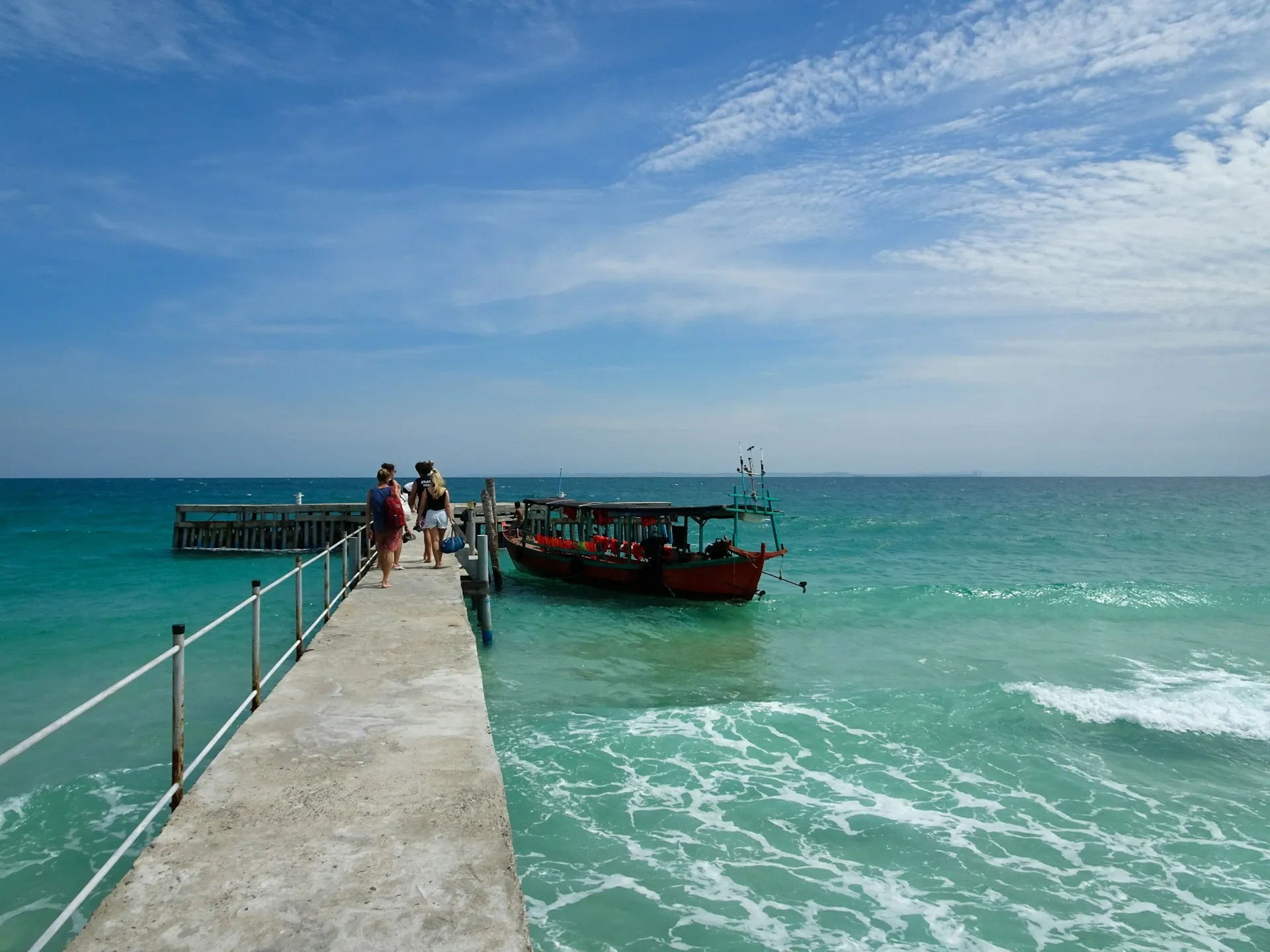
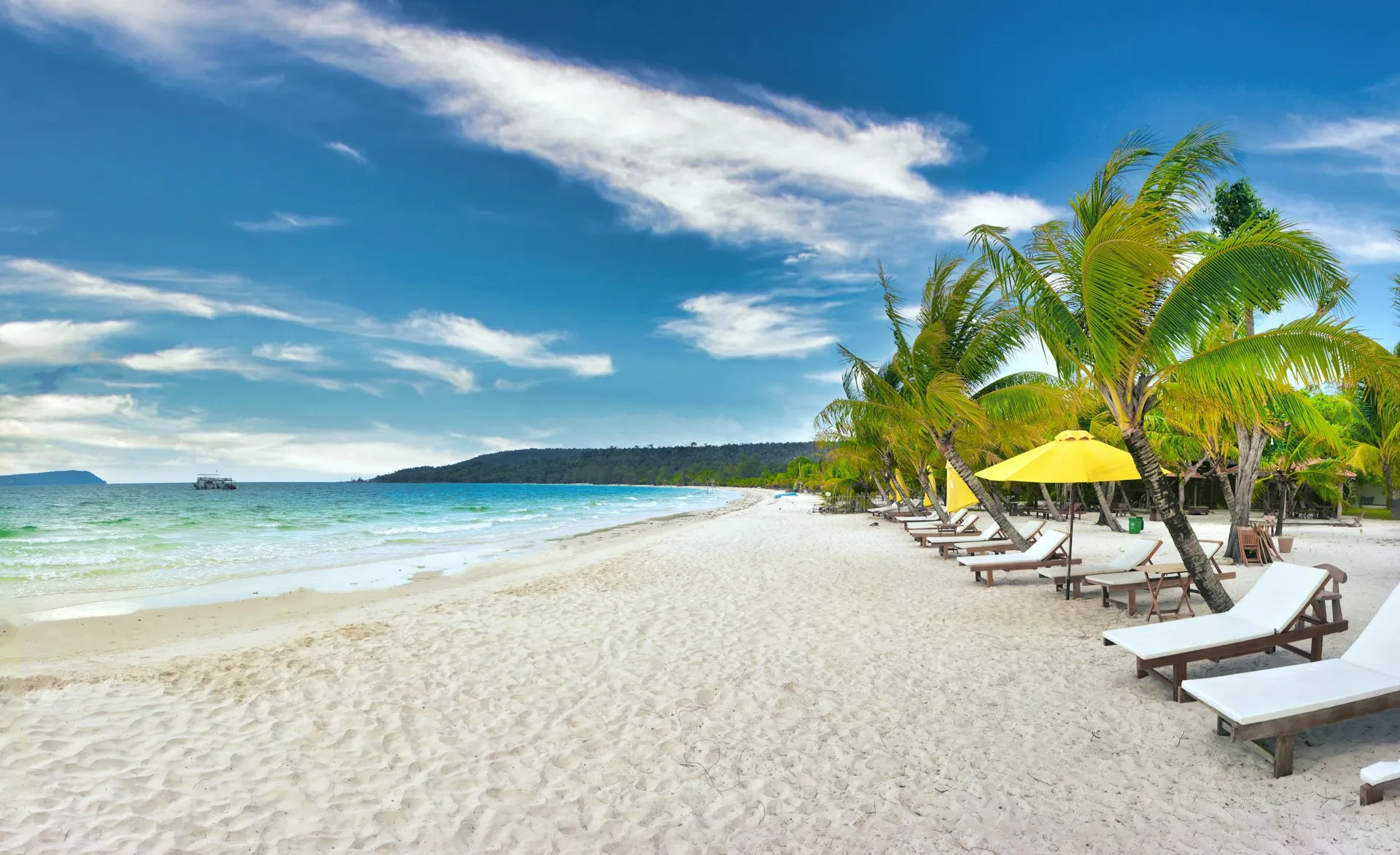
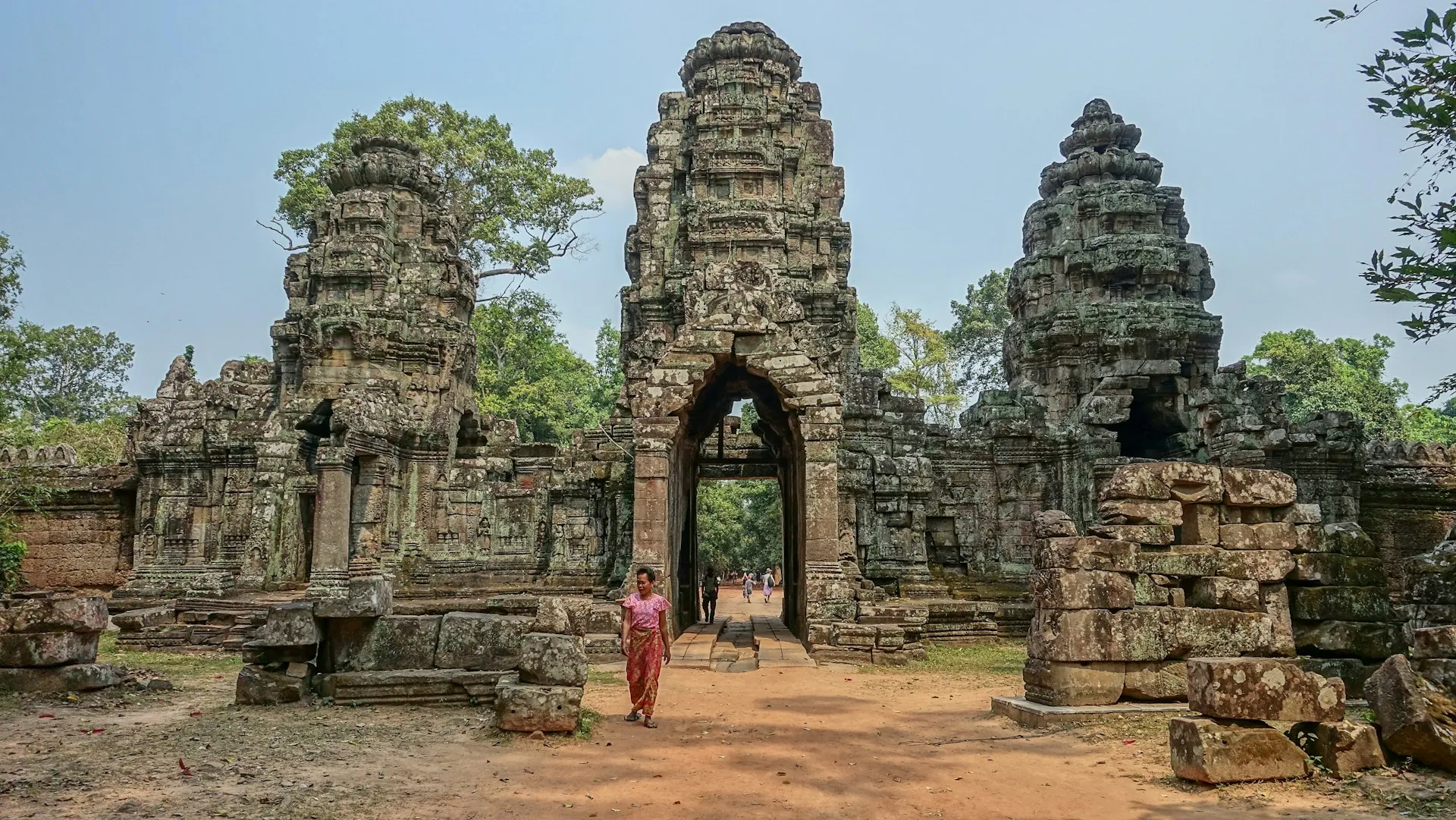
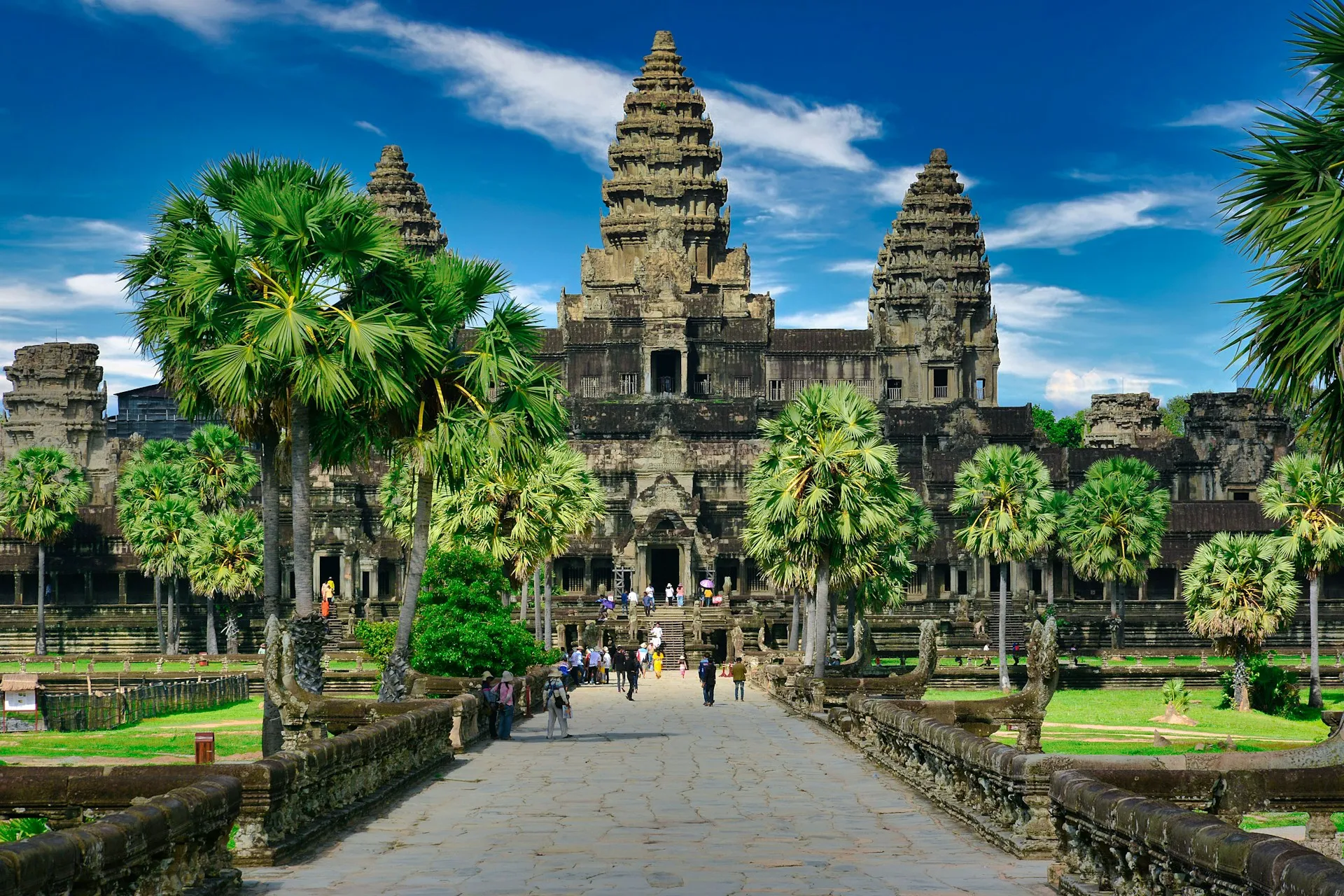
Weather
Location Map
Cambodia
Latest Blog Posts
Latest News: Cambodia Tour Packages – Temples, Culture & Travel Guide
What Our Travelers Say
Real experiences from our valued customers
"The Kedarnath Yatra was a divine experience. Everything was arranged smoothly, making the journey peaceful and memorable. Highly recommend!"
Ravi Patel (Ahmedabad, India)
"The trip to Haridwar and Rishikesh was spiritual and well-managed. Truly a memorable and fulfilling experience."
Daniel Young (Rome, Italy)
"Kashmir is truly heaven on earth! The beauty of Dal Lake and the warm hospitality made our trip unforgettable. Highly recommend the scenic houseboat stay!"
Priya Gupta (Delhi, India)
"I was amazed at how well-organized our visit to the Puri Jagannath temple was. A deeply spiritual and peaceful journey."
Rebecca White (Paris, France)
"Our family trip to Vaishno Devi was incredible! The trip was well-organized, and the staff was very helpful. Truly a blissful pilgrimage."
Anjali Verma (Mumbai, India)
"The Rishikesh Ganga Aarti was magical. The team ensured the trip was perfectly planned, making it an unforgettable experience."

